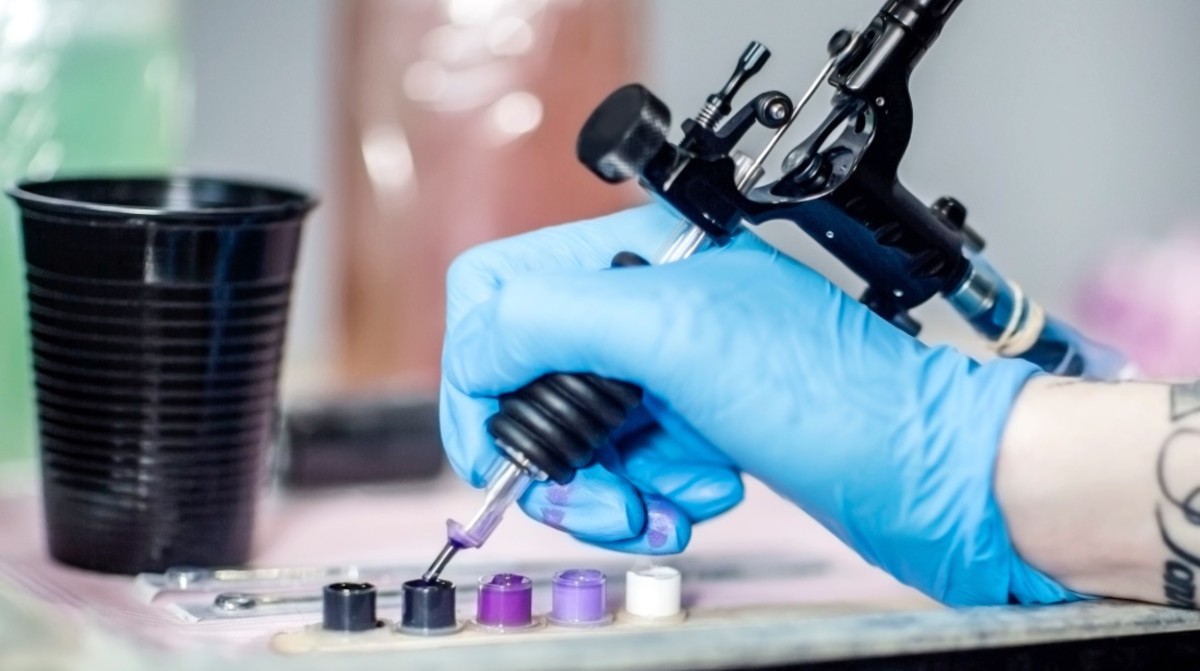The Food and Drug Administration (FDA) has discovered alarming levels of bacterial contamination in nearly half of the permanent makeup ink products and close to a quarter of tattoo ink products tested, according to a recent study. The findings, published in the journal Applied and Environmental Microbiology, highlight significant health risks even in brands marketed as “sterile.”

Widespread Contamination in Body Inks
The FDA’s latest round of testing continues a troubling trend of contamination in body inks sold in the United States. For years, the FDA has warned about the risks associated with contaminated inks, following multiple outbreak investigations and studies revealing the presence of pathogens. In response, the agency issued guidance to tattoo ink manufacturers last year, urging enhanced safety measures industry-wide. Despite these efforts, contamination persists. Since 2003, the FDA has documented 18 recalls of tattoo inks due to contamination.
In this study, scientists from the FDA’s National Center for Toxicological Research analyzed samples from both domestic and international manufacturers, including sources from France and China. Their findings reveal that bacterial contamination is more prevalent in permanent makeup inks compared to tattoo inks.
Detailed Findings of the FDA Study
The FDA tested a total of 49 tattoo ink samples, discovering bacterial growth in nine of them. Among the 35 permanent makeup ink samples tested, nearly half (17 samples) were found to be contaminated. This suggests that permanent makeup products are at a higher risk of contamination. Alarmingly, even products labeled as “sterile” were not immune to bacterial contamination. Out of 49 products claiming sterility, 16 contained microorganisms. This discrepancy raises questions about the accuracy of sterility claims on product labels and the effectiveness of sterilization processes.
Seong-Jae Kim, a microbiologist with the FDA’s National Center for Toxicology Research, emphasized that there was no clear correlation between a product’s sterility claim and the actual absence of bacterial contamination. This study is particularly noteworthy as it is the first to examine both aerobic and anaerobic bacteria in tattoo and permanent makeup inks.
Implications for Consumers and Industry
The FDA’s investigation revealed the presence of anaerobic bacteria, which can thrive in low-oxygen environments like the dermal layer of the skin. Notably, Cutibacterium acnes, a common cause of acne and implant-associated infections, was frequently found in permanent makeup inks. Other harmful bacteria identified included Staphylococcus epidermidis and Staphylococcus saprophyticus, known to cause urinary tract infections.
The study’s authors concluded that the sterilization processes employed by manufacturers might not be fully effective in eliminating all microorganisms, or that the sterility claims on labels may not be accurate. This underscores the need for more stringent regulatory oversight and improved sterilization methods to ensure the safety of tattoo and permanent makeup inks.

The FDA has yet to disclose which specific brands were found to be contaminated or whether any actions have been taken against the companies producing these infectious products. As consumers, it is crucial to be aware of these risks and to seek out reputable sources for body ink products. For the industry, these findings call for a reevaluation of current practices and a commitment to higher safety standards to protect public health.
